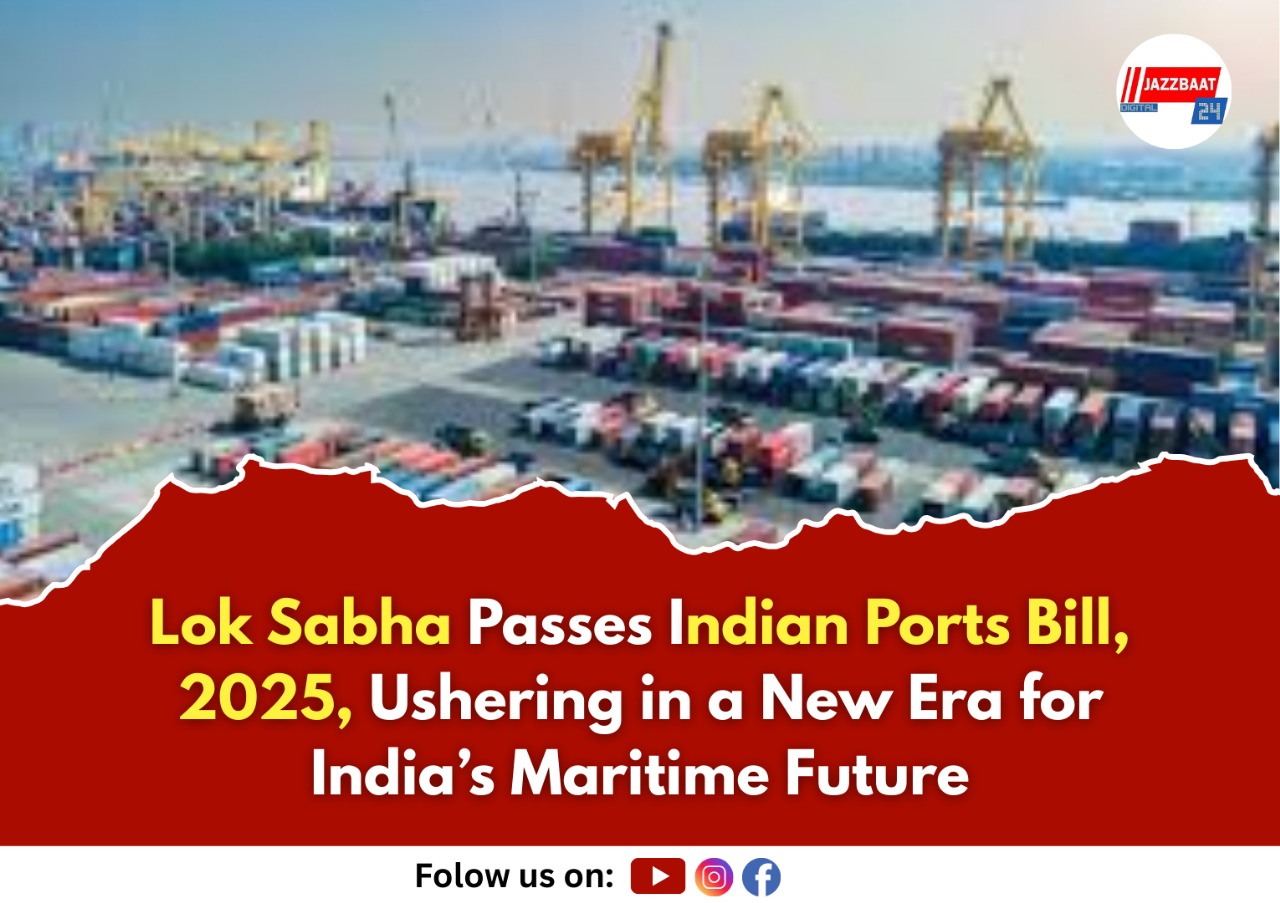
New Delhi: In a historic moment, the Lok Sabha passed the Indian Ports Bill, 2025. This law replaces the colonial-era Indian Ports Act, 1908, with modern regulations designed to improve port management, boost trade efficiency, and position India as a global maritime leader. Union Minister of Ports, Shipping and Waterways Shri Sarbananda Sonowal introduced the bill. He stated that the act reflects Prime Minister Shri Narendra Modi’s vision for a self-reliant, world-class maritime sector.
The bill aims to streamline port procedures, digitalise operations, and make it easier to do business. It also includes sustainability measures such as green initiatives, pollution control, and disaster management protocols. It introduces clear tariff policies, better investment frameworks, and uniform safety standards, as well as integrated planning for long-term port development. Shri Sonowal said, “This Bill marks a decisive step toward making India’s ports globally competitive while safeguarding the environment and empowering coastal communities. It embodies the Honourable Prime Minister Shri Narendra Modi's vision of ‘Ports for Prosperity’ and ensures our maritime sector remains future-ready.”
A significant change under the bill is the creation of the Maritime State Development Council (MSDC), which will include representatives from both the Central and State governments to coordinate national port development strategies. Stronger State Maritime Boards will manage non-major ports, while Dispute Resolution Committees will handle conflicts between ports, users, and service providers. The Minister added, “The bill also aims to boost cooperative federalism as the Maritime State Development Council (MSDC) is aimed at ironing out differences and laying down a smooth way forward for the holistic development of our ports. The bill also provides for the State Maritime Board, which helps effectively manage non-major ports, allowing a clear framework for ports development. Under the dynamic leadership of PM Modi ji, we are creating an ecosystem that will strengthen the maritime capabilities of Viksit Bharat, propelling India to become one of the top global maritime nations by 2047.”
The bill focuses on sustainability and safety. It requires waste reception and handling facilities at all ports, enforces pollution prevention measures according to international conventions like MARPOL and Ballast Water Management, and mandates emergency preparedness plans for disasters and security threats. It also encourages renewable energy use and shore power systems to cut emissions. Shri Sonowal remarked, “Under the leadership of Prime Minister Shri Narendra Modi, the Indian maritime sector has been a key driver of India’s economic transformation. The government’s initiatives, such as the Sagarmala Programme and Maritime India Vision 2030, have focused on port-led development, global competitiveness, and environmental care. The Indian Ports Bill, 2025 builds on these efforts, ensuring that India’s ports develop into engines of sustainable economic growth and global trade.”
The Indian Ports Bill, 2025 aims to lower logistics costs by speeding up cargo movement and improving connectivity. It will create significant jobs in ports, logistics, warehousing, and related